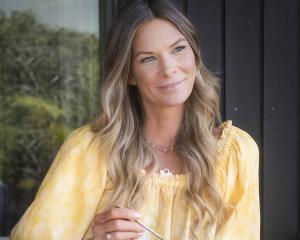
It's June and by now you'll be finding it pretty difficult not to hear about somebody doing junk-free June. Deanna Copland explains what's involved.
Living junk free is all about making healthier choices for a happier life. This initiative is designed to raise money for the Cancer Society by creating awareness of what we are putting into our bodies.
Up to one-third of all cancers are preventable through simple lifestyle changes, including maintaining a healthy weight, eating a healthy diet, limiting alcohol and being active. Simple changes to your diet can have a big impact on your personal health.
A diet rich in fruits and vegetables can improve overall wellbeing and reduce the risk of a range of preventable chronic diseases, including some cancers. Aim to eat a mix of raw and cooked veges each day as they provide different nutrients.
An example is tomato; when raw it is a great source of vitamin C and when cooked, the vitamin C is destroyed but it offers lycopene, another antioxidant which has been shown to help prevent prostate cancer.

Avoid dried fruits as they have concentrated fruit sugars and are usually sprayed with sulphites to help them to retain their colour. Sulphites can exacerbate allergies, asthma and eczema in some individuals.
Living junk free is all about enjoying nutritious foods and drinking plenty of water. As a general rule of thumb, eat plenty of vegetables, fruit, grain foods, lean meats and poultry, legumes and beans, milk, yoghurt and cheese or non-dairy alternatives.
It is important to limit the amount of foods you eat that contain saturated fat, added salt, added sugars and alcohol. It can all be so confusing as to what is good for us and what isn't.
A way to make this easier is to shop around the outskirts of the supermarket; firstly fresh fruit and veges, then lean meats, fish, dairy products and eggs with the occasional exception such as herbal teas, cooking oils and nuts and seeds.
Studies have shown that green tea and tea polyphenols have anti-carcinogenic properties against breast cancer. A number of epidemiologic studies, both case-control and cohort in design, have examined the possible association between green tea intake and breast cancer development in humans.
When a number of studies were analysed, the conclusion indicated a lower risk for breast cancer with green tea consumption. Keep in mind that green tea is a highly sprayed crop therefore opt for organic.
Green tea is supposed to have 80degC water added, not boiling which tends to draw bitter tannins so add a splash of cold water to your cup before adding boiling water.
Snacks can let people down. We often grab high-energy foods that are quick and easy when stressed or tired, rather than actually hungry. Keep healthy snacks nearby such as raw nuts and seeds with some dark chocolate (in a portion-controlled container), vege sticks with nut butter or a piece of fresh fruit. Raspberry coconut truffles (recipe below) are a tasty treat to have occasionally, rather than a daily snack.
There are some useful books and movies that can shed more light on food trends and how certain food works in our body. Some worth watching are That Sugar Film and Food Matters. Books to read are David Gillespie's Sweet Poison and Sarah Wilson's I Quit Sugar.
Many sugar-free recipes use sugar alternatives such as dates, honey and/or coconut sugar. Brown rice syrup is also used and is a good alternative as it is 100% glucose, which is easily utilised by the whole body for energy (unlike fructose, another sugar molecule that is metabolised by the liver then stored as fat).
When recipes call for a sweetener, this is a better option, but it is still a sugar, therefore I would try using less than the recipes states to reduce your sweet desire.
-The advice contained in this column is not intended to be a substitute for direct, personalised advice from a health professional.
Dairy-free, gluten-free, refined sugar-free healthy truffles
Ingredients
1½ cups unsweetened, shredded coconut
1 cup almond meal
½ cup freeze dried raspberry powder
4 Tbsp coconut oil, softened
2 Tbsp brown rice syrup
zest and juice of 1 lemon
¼ tsp vanilla extract
extra coconut for rolling
Method
Place all ingredients into a food processor and mix until combined.
Roll into balls and store in the fridge or freezer.












